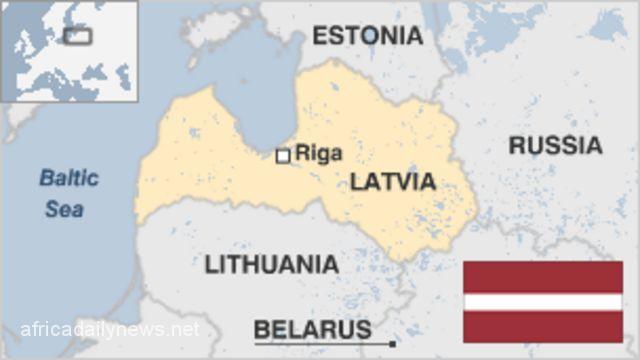It had been reported that when war had been declared in Ukraine, the head of Latvia’s fashion chamber Dita Danosa had not hesitated to also become an army reservist, swapping her usually stylish clothes for military fatigues.
“I really felt I couldn’t be passive and just watch television,” the 49-year-old told AFP at the Mezaine military training ground in western Latvia.
“So I decided, yes, the national guard was the place for me.”
Read Also: Russia, Ukraine Exchange Over 300 Prisoners In Surprise Swap
Since Russian forces had also invaded Ukraine in that same February, Baltic states like Latvia — which shares a border with Russia — have shown their open anxiety about what Moscow might do next especially to them.
This fear has led to a four-fold increase in volunteers, like Danosa, for the army’s reserve force known as the national guard, or Zemessardze in Latvian.
“When the war started, all European values were endangered,” Danosa said, punctuating the silence between the bursts of two bullets.
While Latvia’s EU and NATO membership reassured her, Danosa said she felt under threat “because Russian aggression is unpredictable and we don’t know what can happen”.
Dressed in full combat clothing, including a magazine belt, she had also recalled that Latvia has a “history of occupation”. The former Soviet republic regained its independence in 1991.
Mezaine’s location is symbolic. During the Cold War, it was home to the Skrunda-1 radar station, whose two large installations were to alert the Soviet Red Army in the event of a missile attack from the West.
Now the area is used for, among other things, urban guerrilla training.
Training includes “everything from basic survival to understanding what is war,” said recruit Rudolfs Aboltins.
“How to take up arms or even how to present yourself or talk to people, how to engage with unexpected situations in society as well as in combat,” he added.
Like Danosa, Aboltins joined the guard after the invasion.
Although he felt no immediate threat to Latvia, the “atrocities” in Ukraine mean “what I’m doing right now could matter in the future”, he said.
“Many of us have pacifist tendencies. We took arms and started learning to shoot because we want to be able to protect our loved ones,” he told AFP.
After basic training, he will take part in a specialised course to improve communication between civilians and troops.
Others who wish can also specialise in areas such as anti-tank warfare, medical aid or train to become snipers.










